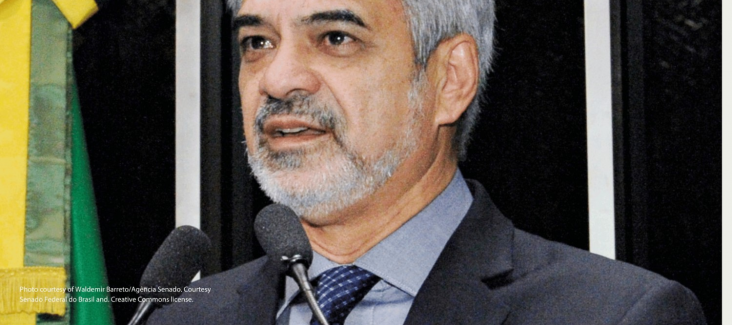One of the world’s great democratic innovations is about to make a big comeback in the place where it was invented: my country, Brazil.
And the story of that innovation’s rise, fall, and revitalisation offers lessons for the world.
Participatory budgeting was a creation of Brazil, first introduced in Porto Alegre in 1990. Under participatory budgeting, everyday Brazilians met and decided themselves how to spend portions of their local government budgets. The meetings and debates were not easy work, but people liked having the power. So, the idea spread quickly to other cities, with the support of the Workers’ Party, of which I was a member.
At the time, the Workers’ Party was out of power nationally but counted many mayors and state governors in our ranks. Participatory budgeting was part of our efforts to engage more Brazilians where they live.
In the 2000s, I saw participatory budgeting firsthand in Recife, my own city, the capital of the northeastern province of Pernambuco. We used it extensively at the neighbourhood level, so people could set priorities for spending and choose specific projects they wanted to pursue.
I was in government at the time—working on health matters—and we were intrigued and often surprised by the choices people made. In many situations, we assumed people had one set of priorities, but found criteria were totally different when we actually asked them to make a decision.
In one example, we thought that a group of neighbourhoods might prioritise building a public health office, or clinic. But through a participatory budgeting process, the people of the neighbourhoods indicated that they actually wanted something different: an extension of an existing program called “City Gym” that provided space for recreation and exercise.
Constructing a city gym gave them a place to go to pursue their health, to run and walk, and to meet friends. The citizens also wanted exercise equipment. Participatory budgeting gave them the power to get what they wanted. It also seemed to improve health—reducing stress and diabetes risk. An international evaluation recommended the “City Gym” program to other countries.
Watching participatory budgeting in process, those of us working in public health learned that we had to listen to people. We expanded other programs that citizens told us they wanted, like the Family Health Program, a national program composed of doctors, and taking into consideration primary care. We also learned that we had to talk to people more often, if we were going to convince them to prioritise spending on an area we wanted to promote.
Participatory budgeting was such a success in Brazil’s local communities that it spread around the world, to more than 11,000 communities, according to an atlas that documents the process. Participatory budgeting processes have won many awards for innovation and engagement.
But in Brazil, its birthplace, the process has declined in use. What happened? There was resistance from officials who didn’t want to cede power to people or found setting up the process to be challenging. My party’s priorities changed. As we won presidential elections and took power nationally, we lost interest in city hall and state government.
That was an enormous mistake. When participatory budgeting declined, the people became less engaged and less organised. And that meant that when the far right gained power, the people were not mobilised to resist. Democracy is something that requires practice.
The Workers’ Party has just won the presidency again. But this time, we are not repeating our mistake. I’m now a senator, and participatory budgeting and democratic programs like it are a big part of what we’re working on.
Indeed, our new president, Lula, is preparing a participatory budgeting program for the nation. It’s an important topic in discussions at the federal government level, where we hope to apply it to four-year planning budgets.
I’d like to see it used more broadly also to make decisions in each state, and in municipalities. Such participation could help set priorities for addressing many issues, including health, education, and public security.
It won’t be easy to create this process at the national level. It will take some time. But it’s an important step. It’s time to remobilise this signature Brazilian idea so that Brazilians can again set their own priorities, and make their own decisions about the future.

